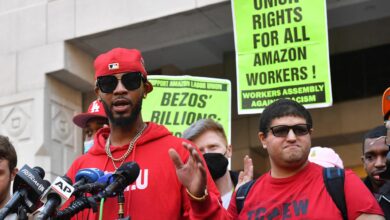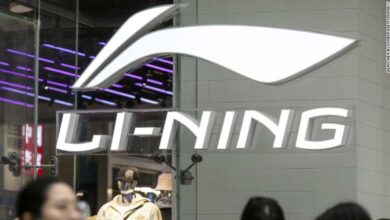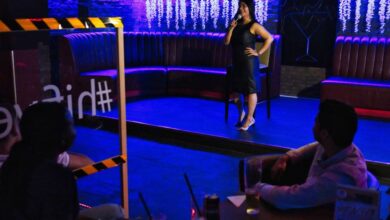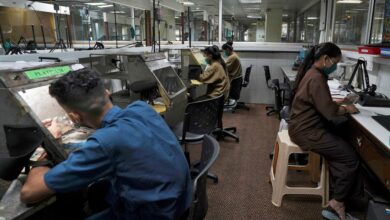MAHALLA — The city of Mahalla, which some call the "Industrial Citadel of the Nile Delta," conducted its first day of landmark presidential elections Wednesday amid a lower-than-expected voter turnout, witnesses and observers said.
Mahalla is home to the largest textile company in Egypt and the Middle East, the Egyptian Spinning and Weaving Company, which has consistently been at the forefront of labor struggles and strikes. This Nile Delta city also boasts a number of other textile mills and factories.
On 6–7 April 2008, Mahalla was the scene of a localized uprising against the Mubarak regime. This revolt was widely perceived to be one of the preludes to the 25 January revolution. This legacy, among other things, appears to be influencing voter choices in the presidential poll.
A random survey of voters in the industrial town suggested that Muslim Brotherhood candidate Mohamed Morsy, populist Nasserist candidate Hamdeen Sabbahi and moderate Islamist Abdel Moneim Abouel Fotouh were the most popular. Former Arab League chief and former Foreign Minister Amr Moussa and long-time Civil Aviation Minister Ahmed Shafiq, who also served as Hosni Mubarak's last prime minister, did not seem to have the same popularity that they do in Cairo and other cities.
On-the-ground presence was limited to the Morsy, Abouel Fotouh and Sabbahi campaigns, which visibly affected voters’ choices.
"The workers of Mahalla, and Egypt at large, are not united behind a single candidate," election monitor Hamdy Hussein said.
He said the Socialist Popular Alliance Party's Abul Ezz al-Hariry has some geopolitical support in the city because his family is from nearby Daqahlia. Sabbahi also hails from Delta governorate Kafr al-Sheikh.
Leftist labor lawyer Khaled Ali has a basic level of support among Mahalla's workers due to his legal defense of workers there and elsewhere in the Gharbiya Governorate.
The first day of polling saw a number of electoral violations and irregularities, the most visible of which involved campaigning outside polling stations. As was the case during parliamentary elections, the Brotherhood's Freedom and Justice Party sat near polling stations with laptops and offered to help voters find their stations, writing the voter registration numbers on campaign cards for Morsy.
Campaigners for Abouel Fotouh were seen doing the same.
Stepping out of the Hoda Sharawy Primary School, a veiled middle-aged woman, who identified herself as "Al-Doctora" said: "I personally did not witness any problems or violations within the polling station. However, I did witness electoral violations outside, specifically youths promoting their candidates while directing voters to their stations. They write down the voters' information on their campaign cards."
The woman said she reported the activities to the judge overseeing the local polling station as well as other election officials, but that "these violations are not removed — only relocated."
Another violation involved Sabbahi campaigners seen distributing juice from a pickup truck bearing a large poster of the Karama Party leader.
Hussein held up his ink-free finger after voting, saying that the judge's failure to ensure that each voter dips a finger in indelible ink leaves room for fraud.
"This is evidence that people are able to vote more than once. If you use the ID of a friend or family member, you may get away with voting at more than one polling station," he said.
"We have received reports of women wearing the niqab perpetrating repeated electoral violations. These veiled women are often used to cast ballots at more than one polling station," the election monitor alleged.
According to Hussein, a scuffle broke out in the early afternoon between Shafiq and Morsy campaigners as they were tearing up each other's posters.
The Horreya Primary School temporarily closed its doors to voters to take a lunch break.




